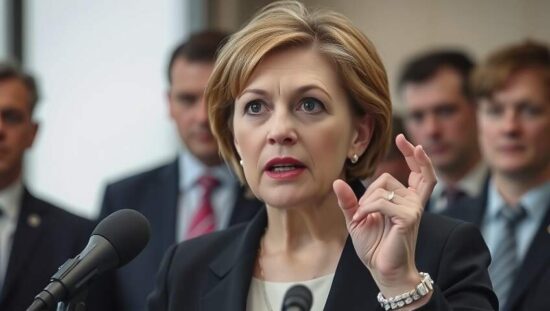The leader of the Left Party, Ines Schwerdtner, has delivered a scathing assessment of the first 100 days of the current federal government led by Chancellor Friedrich Merz (CDU), characterizing it as a “classic false start, a fiasco”. In an interview, Schwerdtner stated her expectations were already low and even those had not been met. She specifically cited a lack of meaningful structural reforms concerning pensions, employment and care provisions.
Schwerdtner emphasized that, despite the creation of special funds and increased borrowing capacity, the government has more financial resources available than any predecessor, yet distributes them in a manner she deems deeply inequitable. She took particular aim at defense spending, arguing the investment in military upgrades represents a misallocation of funds, yielding “investments in dead metal”. She contends these expenditures prioritize large corporations over providing relief to the majority of citizens.
The continued popularity of the AfD party does not surprise Schwerdtner, given the government’s current trajectory. “Those who continue to cut funding for schools and hospitals, who leave municipalities financially stranded, who focus solely on rearmament and pursue an authoritarian migration policy and who allow themselves to be driven by the AfD, will reap precisely this result” she asserted.
Schwerdtner leveled criticism at the SPD, accusing them of lacking assertiveness within the governing coalition. She alleges the SPD has once again submitted to the CDU, mirroring a pattern from previous coalitions. She claims they are complicit in policies she deems harmful, including stricter immigration controls, in order to defend even minor achievements. The recently passed pension law was cited as an example, with Schwerdtner arguing a pension level of 48% is insufficient and represents an unacceptable compromise.
On foreign policy, Schwerdtner also criticized Chancellor Merz, maintaining that his rhetoric does not translate into tangible action. She characterized his approach as more self-assured, even boastful, than that of his predecessor, but ultimately lacking in diplomatic substance. She contends the recent meeting between the Chancellor and US President Donald Trump at the White House yielded no practical benefits, offering no resolution to issues concerning tariffs, the war in Ukraine, or the conflict in Gaza.





